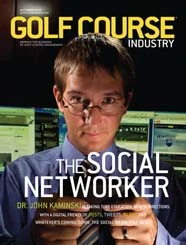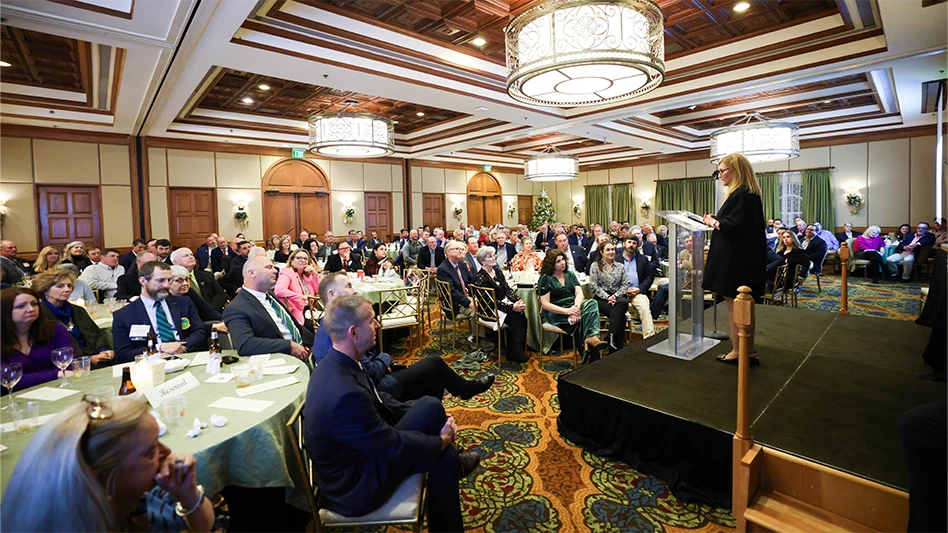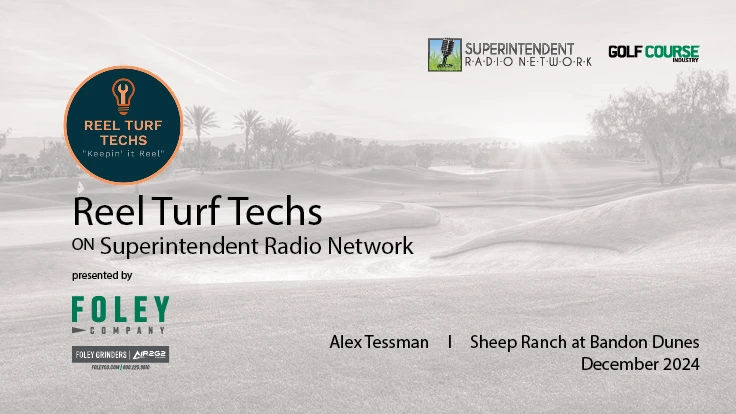As I write this, I’m sitting in my palatial office in the penthouse suite of GCI’s global headquarters looking at a baseball bat.
I love having a bat sitting prominently right next to my desk. It dramatically reduces employee whining. I’m thinking a TASER gun would be the ultimate deterrent, but it may be a wee bit over the top.
Anyway, the reason I have a baseball bat in my office is I recently attended an event hosted by our friends at Lebanon Turf that was held in Cooperstown, N.Y. Being no strangers to the business of fun public relations themes, the nice people at Lebanon gave attendees a baseball bat with our names and their company logo engraved on it.
The event put a spotlight on Lebanon’s non-traditional plant nutrition lines. Over the past few years, the company acquired both the Roots/Novozymes and Emerald Isle/CPR products and, I think, discovered just how much confusion there is in this market segment. The event was an attempt to help a bunch of us dumb media types learn what these kinds of products do and therefore be able to write about them better. Now, getting a reporter to understand this kind of technical information is roughly equivalent to teaching Britney Spears to rewire the space shuttle, but they brought in my old fishing buddy Dr. Roch Gaussoin and several other really smart guys to try anyway. Here’s what I think I learned.
Nobody is really quite sure what to even call this category of products. Are they biostimulants? Are they foliars? Liquids? Soil supplements? Microbes or bacteria? Are they based on amino acids or are they made from seaweed? The answer, of course, is “all of the above.”
At least half of superintendents are using them in some fashion, ranging from the full ongoing program approach to greens-only applications to tossing a bit of something into a tank mix to prevent phytotoxicity. Nearly all use them in combination with a reduced granular program.
Of those superintendents using them, most use more than one in combination to get broad spectrum results. Creating a “witches brew” of various bio components is pretty common.
Those who use them as part of a program generally love them and keep using them as long as they see a positive impact…and they can afford them.
Their acceptance – and use – continues to grow steadily.
The last point seems to be the crux of the matter when it comes to these “supplemental plant nutrition products.” Over the past decade or so, companies like Lebanon, Floratine, Grigg Brothers, Growth Products, Nutramax and others have stepped up to independently prove their claims about better rooting, vigor, improved nitrogen efficiency and stress resistance. The suppliers who have legitimized their products have moved beyond the realm of snake oil to become accepted parts of maintenance programs at thousands of courses. Sure, there are still some turf professors and consultants who continue to question their value, but superintendents believe in research and, more importantly, their eyes and their soil probes. That’s where the rubber meets the road.
I’m hardly an agronomist, but it’s clear to me that while there are still many of you who are perfectly happy with your tried-and-true granular NPK programs, the demands of “fast and firm” and the resulting decreased reliance on nitrogen left a void that non-traditional bios have filled nicely.
And, as communities and states heighten scrutiny of phosphorus and nitrogen loading, traditional options may also go the way of the ten-cent ballpark hotdog. What was seen as an alternative will become more of a primary turf nutrition source when legislators and regulators decide that it’s politically expedient to take tools away from us. Does anyone seriously think that’s not going to happen?
Baseball is strongly rooted in traditions started more than a century ago, but the game has changed and evolved for the better – except for the DH rule, which is just communist. Golf course maintenance is evolving, too, and it’s time we fully accept the fact that bionutrients are going to be a major-league part of our future. GCI

Explore the October 2010 Issue
Check out more from this issue and find your next story to read.
Latest from Golf Course Industry
- Golf Construction Conversations: Reed Anderson
- ’Twas the Night Before Christmas (on turf)
- Twas the Night Before Christmas (the turf version audio)
- Advanced Turf Solutions and The Aquatrols Company release soil surfactant
- Heritage Golf Group acquires North Carolina courses
- Editor’s notebook: Green Start Academy 2024
- USGA focuses on inclusion, sustainability in 2024
- Greens with Envy 65: Carolina on our mind





